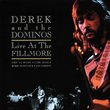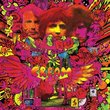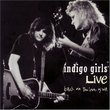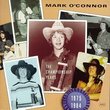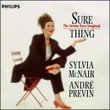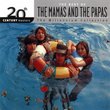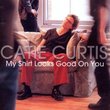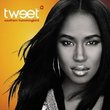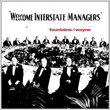| All Artists: Eric Clapton Title: Layla Members Wishing: 1 Total Copies: 0 Label: Warner Bros / Wea Release Date: 11/5/1992 Album Type: Single Genres: Pop, Rock, Classic Rock, Metal Styles: Blues Rock, British Invasion, Album-Oriented Rock (AOR) Number of Discs: 1 SwapaCD Credits: 1 Other Editions: Layla & Other Assorted Love Songs UPCs: 494367400281, 054391878724 |
Search - Eric Clapton :: Layla
 | Eric Clapton Layla Genres: Pop, Rock, Classic Rock, Metal Japanese-only SHM-CD (Super High Material CD) paper sleeve pressing of this classic 1970 album. SHM-CDs can be played on any audio player and delivers unbelievably high-quality sound. You won't believe it's the same CD! Un... more » |
CD DetailsSynopsis
Album Description Japanese-only SHM-CD (Super High Material CD) paper sleeve pressing of this classic 1970 album. SHM-CDs can be played on any audio player and delivers unbelievably high-quality sound. You won't believe it's the same CD! Universal. 2008. Similar CDs
Similarly Requested CDs
|
CD ReviewsClapton's Masterpiece Steven R. Seim | Beaver Dam, WI United States | 07/22/2002 (5 out of 5 stars) "One can hardly use too many superlatives when describing "Layla..." It is one of the essential recordings of British blues, of '60s rock, of '70s rock (since it straddles two decades), of blues-rock, of guitar-rock, and of rock 'n' roll in general. From the searing blues of "Key to the Highway," to the passion of "Little Wing" and "Bell Bottom Blues," this album represents everything that Clapton fans love about him. Of course, the title track is a musical monument in its own right, and its two halves (driving blues-rock opening, soothing but emotional instrumental coda) neatly summarize the entire album. And, you know it's a great record when you find yourself loving lesser-known album tracks even better than its radio classics. "Keep on Growing" and "Anyday" are, in this reviewer's humble opinion, simply transcendent.When people insist on listening to "classic rock" stations, and claim that no one makes good records nowadays, "Layla" may very well be what they have in mind. It's what great rock is supposed to be." Consummate blues, born out of the pain of unfulfilled love. Themis-Athena | from somewhere between California and Germany | 10/06/2006 (5 out of 5 stars) ""Have you ever loved a woman, so much you're tremblin' in pain, and all the time you know she bears another man's name - but you just love that woman so much, it's a shame and a sin ... and all the time you know she belongs to your very best friend!" If you'd never heard this album's title track, you would swear that "Have You Ever Loved A Woman" was the song that Eric Clapton wrote for Pattie Boyd Harrison; not only do the lyrics of Billy Myles' blues classic fit so perfectly, Clapton positively pours his heart out as he sings them, and his guitar screams with the pain of unrequited love. And even before get to this song, Clapton's own "Bell Bottom Blues" lays bare similar feelings and recalls his infamous heroin ultimatum to Pattie ("Either you come with me or I'll take that"): "Do you wanna see me crawl across the floor to you? Do you wanna hear me beg you to take me back?" And as the man pleads with her, so does his guitar, and you wonder what woman could possibly have resisted such an impassioned plea. Until of course, almost at the end of the album, you hear "Layla," this record's motto more than a simple title track and, in many respects, its reason for being. Torn by personal insecurity, Clapton used the cover and seeming anonymity of yet another band, and the parable of a medieval Persian love story ("Layla and Majnun" - reportedly, "majnun," in Persian, means madman) to put into music what he couldn't put into words alone. From its opening riff to its last note the song is pure blues, Clapton audibly on the brink of the madness he sings about, and his guitar wailing, moaning and crying out all that was in his heart: "Layla ... you got me on my knees - Layla ... I'm begging darling, please - Layla ... won't you ease my worry now?" Sparks must have been flying in the studio while Eric Clapton and Duane Allman, recruited by manager Tom Dowd to add inspiration and take some of the lead guitar weight off Clapton's shoulders, drove each other to ever greater heights, simultaneously feeding off and to each other. Like most of the album, "Layla" was recorded live in the studio, and only a live recording could transmit this feverish outbreak of passion. Merely listening to the song is emotionally exhausting, and you can only imagine what must have gone on in the studio and inside Clapton during its recording. To hear the Allman Brothers' drummer Butch Trucks tell the story (in an interview for "Off the Record"), Duane Allman gave "Layla" its finishing touch when he added the five notes immediately following its signature riff. Yet, Allman is not credited as a writer (if that story is true, though, how much more than those five notes would it have taken I wonder?); only drummer Jim Gordon is, for having written the song's piano closing - which he had to be persuaded to allow to be used. And while Eric Clapton continued to perform the song unaltered for years after its initial recording, he spontaneously decided to include it in the setlist of his MTV "Unplugged" appearance where, deprived of all its riffs, even its signature beginning toned down to a few simple notes, and Clapton's voice unexpectedly reflective, Layla assumed a different personality although not a word of the lyrics was altered. Yet, just as Eric Clapton's and Pattie Boyd's marriage was over by then, Layla was now less an object of burning desire than somebody the singer thought about - thought back to maybe, or sought a conversation with, possibly cautioning her about the consequences of her actions, or recalling his experiences with her: "What will you do when you get lonely, no one waiting by your side? You've been running, hiding much too long - you know it's just your foolish pride ..." And although Clapton has gone back to performing the song in its "plugged in" version during his 2001 "Reptile" tour, he has confined himself to talking only about its musical values, commenting on the technical difficulties of playing riffs and chords that are virtually opposite to what you are singing in an interview for the tour's official program. Besides Eric Clapton and late addition Duane Allman, Derek And The Dominos consisted of the musicians "left over" by the breakup of Delaney and Bonnie, with whom Clapton had briefly found shelter after yet another supergroup of his (Blind Faith) had disintegrated way too quickly: Bobby Whitlock, Carl Radle and Jim Gordon. Like virtually all of Eric Clapton's albums, solo as well as with his various bands, this record combines material written by Clapton himself and covers of songs he liked; and of course, there is much more to it than "Layla," "Have You Ever Loved A Woman" and "Bell Bottom Blues." As always, Clapton makes his mark with every song alike, and as always, he needs and has found (or Tom Dowd found for him) a cast of outstanding musicians to work with. Segar/Bronzy's "Key to the Highway" becomes an extended blues jam session as there ever was one, and Jimmie Cox's "Nobody Knows You When You're Down and Out" forecasts the feelings which, among other things, later compelled Clapton to establish the Crossroads foundation. Eric Clapton has said about Derek And The Dominos in the interview for the "Reptile" tour program: "[That] was a band I really liked - and it's almost like I wasn't in that band. It's just a band that I'm a fan of. Sometimes, my own music can be like that. When it's served its purpose to being good music, I don't associate myself with it any more. It's like someone else. It's easy to do those songs then." Hearing the raging pain of "Layla"'s original recording, you wonder whether this is maybe also the only way for him to perform it now ... at least "plugged in." Also recommended: Eric Clapton's Rainbow Concert Crossroads Unplugged One More Car: One More Rider (CD & DVD Set) Riding with the King The Allman Brothers at Fillmore East" The band was transitory but blessed James McDonnell | NJ | 12/06/1999 (5 out of 5 stars) "It is rumored that Duane Allman challenged EC to be more aggressive on the guitar than he would otherwise have been. The result is magnificent. Clapton's songwriting skills come to fruition here and he is starting to emerge as a well-rounded performer and not just a guitar slinger. A nice combination of blues with a gospel touch. EC makes us feel his pain, even 30 yrs. later, it still hurts. Standouts: I looked Away, Bell Bottom Blues, Little Wing, Anyday and of course the title track. A round of applause for Bobby Whitlock. A "must" buy."
|

